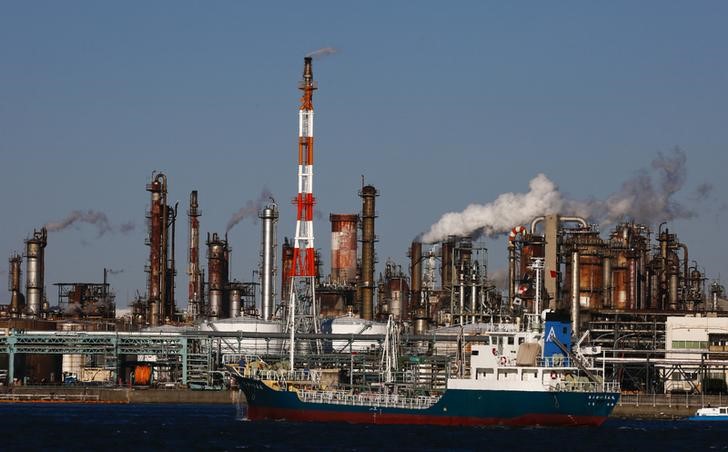By Ernest Scheyder
HOUSTON (Reuters) - If a crisis is a terrible thing to waste, the oil industry sees the Paris climate accord not as a death knell, but an opportunity to innovate and even grow.
The move is a shrewd one for an industry that has been on the defensive for years on climate issues, constantly fending off attacks that its products have contributed to an unhealthy rise in global temperatures.
While the landmark emissions-reduction agreement among 195 countries late last year was seen as a defeat for fossil fuel producers, executives and oil ministers sounded a clarion call this week at their first major meeting since the Paris talks for more research into how carbon capture technology can be cheapened and perfected.
The hope is that this and other technologies could sharply cut oil and natural gas emissions, protect the industry from the ramifications of climate change legislation and ensure developing economies still have access to inexpensive energy.
"If you could eliminate all of the carbon dioxide from fossil fuel combustion, then you could use those fuels as long as you want," Robert Armstrong, director of the MIT Energy Initiative, said in an interview on the sidelines of IHS CERAWeek, the world's largest gathering of oil executives.
"It's just a matter of making those technologies competitive in the market."
That could help the oil industry avoid the worst-case scenario for a post-Paris world: governments forcing oil and gas production to cease in certain areas.
Ali Al-Naimi, Saudi Arabia's oil minister, called climate change a greater challenge for his industry than even crude price (CLc1) gyrations.
Naimi, who attended the Paris meetings, said his nation - the Organisation of the Petroleum Exporting Countries' de facto leader - is committed to finding technological solutions to slash emissions.
"We recognise the threat posed by climate change," he said. "We and many others have invested time, money and brain power into seeking technological solutions to the challenges posed by climate change, in particular with carbon capture."
Ryan Lance, chief executive of ConocoPhillips (N:COP), spoke about the impact of climate change in Alaska, where his company is the largest oil producer. "I've seen the glaciers melting," he said.
John Hess, CEO of Hess Corp (N:HES), North Dakota's third-largest oil producer, called climate change a "serious problem."
"The world needs more energy, but it needs less CO2. We think we can get there," Hess said in an interview.
Many expressed confidence the industry's scientists - who perfected horizontal drilling and fracking that reinvented the industry - could find ways to prevent more carbon from polluting the atmosphere.
Their comments starkly contrasted with how some members of the industry for years questioned the reality of climate change. A couple of energy companies have faced inquiries over their climate change disclosures.
The Paris deal, which must still be ratified, aims to limit the rise in global temperatures to "well below" 2 degrees Celsius (3.6 degrees Fahrenheit), a level scientists see as a tipping point. Until now, the line was drawn only at 2 degrees.
Oil companies have pulled off technological surprises before. An Exxon Mobil Corp (N:XOM) engineer invented the lithium ion rechargeable battery in 1975 amidst widespread concern oil supplies would run out. While that battery failed to immediately take off, it is now used by Tesla Motors Inc (O:TSLA) to power its electric cars.
In an unusual twist, JB Straubel, Tesla's chief technical officer, gave a keynote speech at the event.
'FORCE FOR GOOD'
Naimi insisted the oil industry was a "force for good," providing fuels for economic growth in developing nations.
"We should not be apologising, and we should not ignore the misguided campaign to keep it in the ground," the Saudi minister said.
Industry leaders say it is hypocritical for societies to continue to use products derived from fossil fuels while demanding an end to oil and gas extraction.
"It's a bit Pollyannish to say that we can move away from the carbon age and still have rising expectations for living standards," said Mark Papa, CEO of Silver Run Acquisition Corp
For John Brown, the executive chairman of L1 Energy and the former CEO of BP PLC (L:BP), climate change is also a life-or-death issue for the oil industry.

"To have a seat at the table and shape the future is, I believe, vital," Brown said. "We do need a planet upon which to conduct future oil and gas activity."